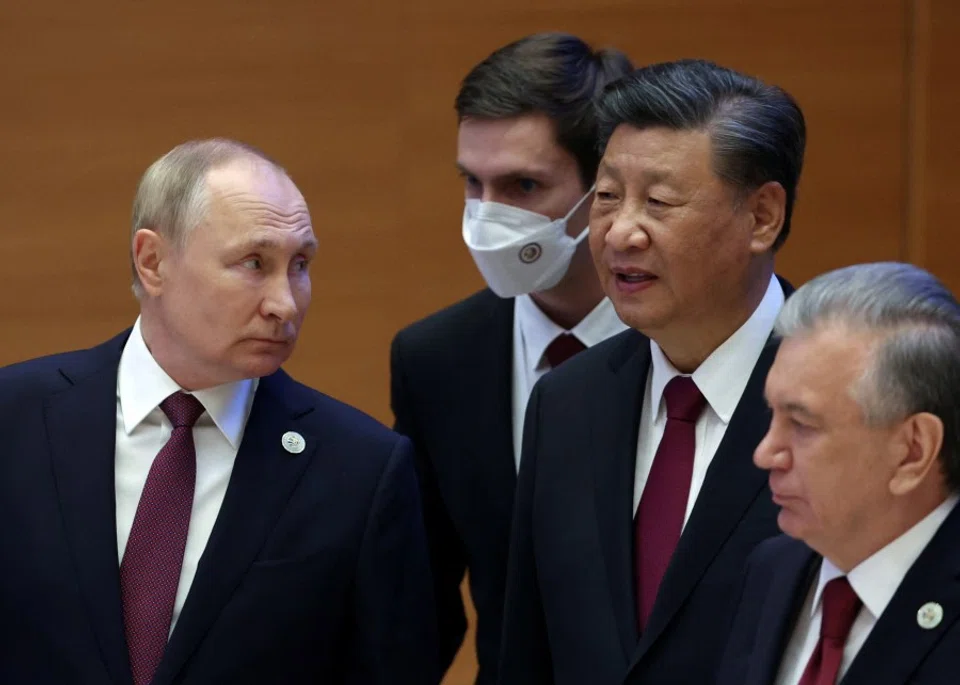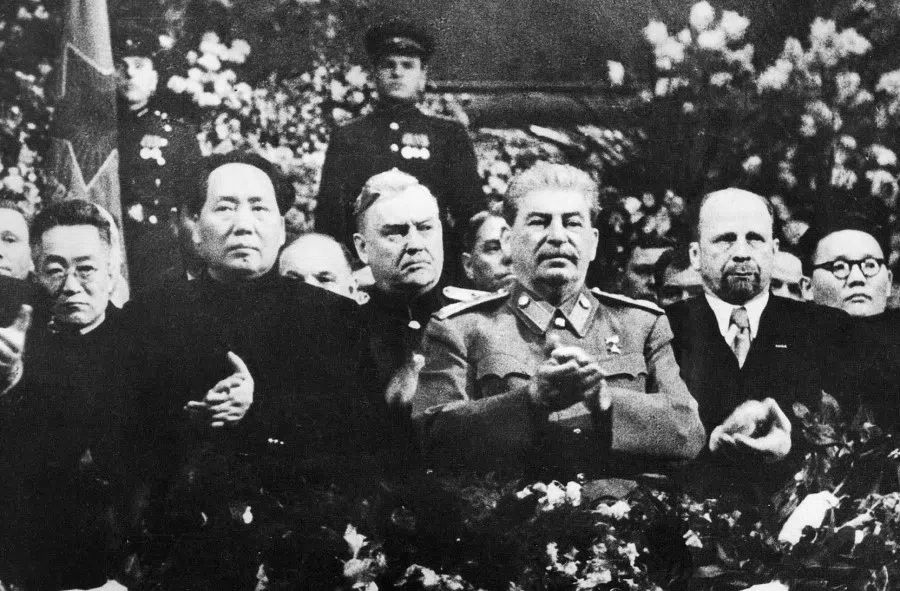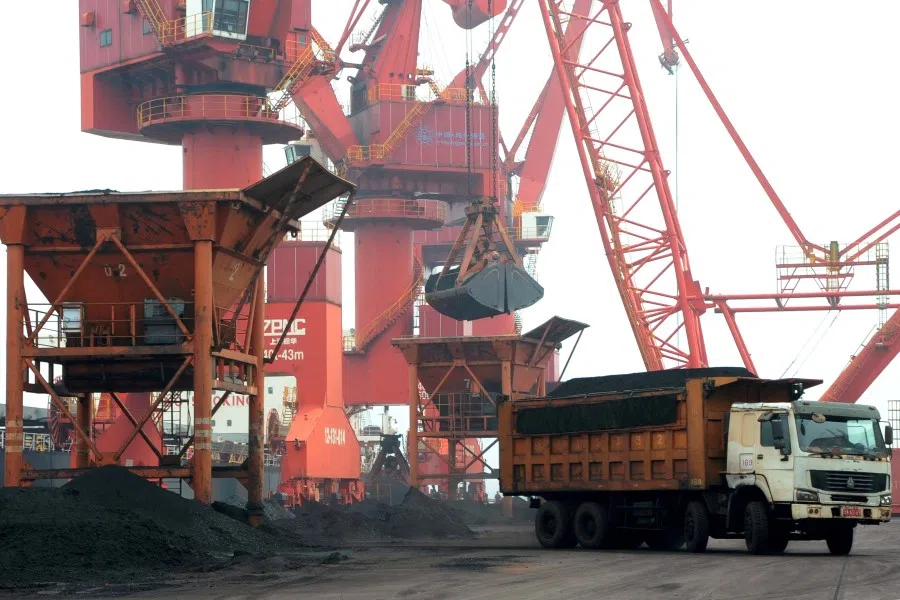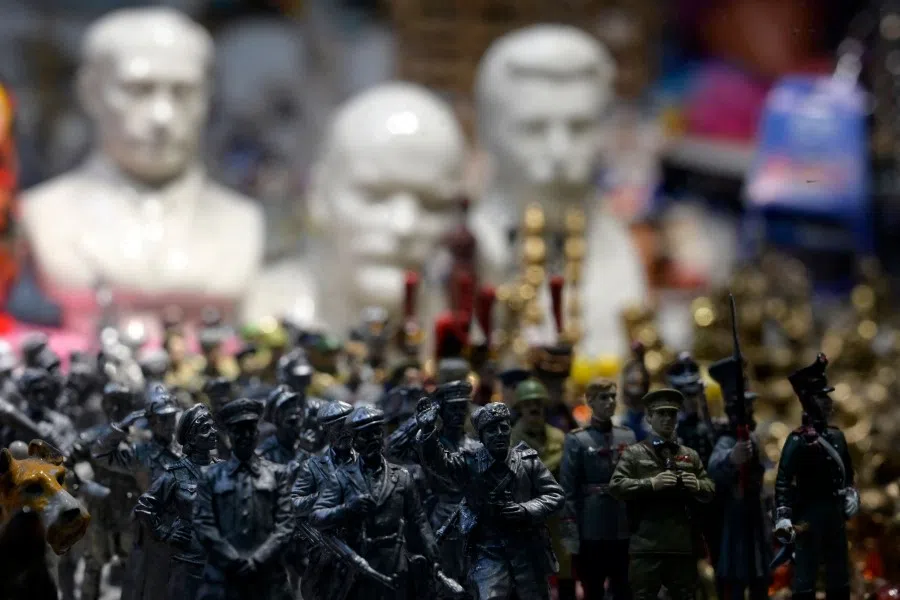What a weakened Russia would mean for China
It seems that the longer the war in Ukraine drags on, the more dependent Russia will be on China. After more than three centuries of Russia-China relations, it seems that the situation is coming full circle and Russia is becoming increasingly subordinate to China.

Diplomatic ties between China and Russia date back to the 17th century when both nations signed the Treaty of Nerchinsk in 1689. At the time, both nations were at the height of their power. Russia, under Peter the Great, had reached the Pacific Ocean and was moving on towards northern China. China, under the Manchu Qing dynasty, was powerful and on the path of territorial expansion. The two nations were the largest land empires in the world. This power parity paved the way for the signing of the Treaty of Nerchinsk respecting both countries' sovereignty.
This agreement endured until the late 19th century with both empires respecting each other's spheres of influence. However, as the Qing dynasty began its steady decline in the 19th century, the Russian empire, following the lead of Western imperial powers, imposed on China unequal treaties and claimed northern Manchuria as its sphere of influence. Russia's defeat at the hands of Japan in the Russo-Japanese war in 1905 ended any pretensions of Russia in China; from then on and until the end of the Chinese civil war in 1949, Russia and its successor state the Soviet Union played a marginal role in China.
China once a junior partner
Following the CCP's victory over the nationalists, the Soviet Union became China's main political and economic ally. Devastated by Japan's occupation and the civil war, a desperate China turned to the Soviet Union. Moscow provided billions in loans, machinery, weapons, and sent in thousands of Soviet specialists to help its ally rebuild. Despite the rhetoric of communist solidarity, this was an unequal relationship. China was the junior partner and Stalin always saw Mao as his inferior.
China's dependence on the Soviet Union was exacerbated by the outbreak of the Korean War in 1950. China sent millions of soldiers to fight in Korea. While the Soviets provided weapons and logistical support, Stalin avoided direct involvement for fear of provoking a conflict with the US.
Without Russian support, the PLA could have not become the modern force that it is today.

Chinese resentment was further exacerbated by the Soviet demand for China to pay for the weapons and supplies provided by the Soviets. These tensions would eventually lead to the Sino-Soviet split in the early 1960s. Following the collapse of the Soviet Union in 1991, Russia plunged into economic turmoil and military humiliation in Chechnya, while in China, the CCP survived the Tiananmen protests and presided over unprecedented economic growth. Many Chinese revered Deng Xiaoping for his reforms while they saw Gorbachev at best as naïve and at worst as a fool.
Russia was the gun and China the purse
From the 1990s, China's economy began to dwarf that of Russia and its prestige and influence around the world grew, while that of Russia declined. Under Vladimir Putin, Russia regained respect among the Chinese leadership and people who admired his strong leadership. While China's economy became several times larger than that of Russia's, until very recently, China was very dependent on Russia for military technology. Chinese aircraft, warships, submarines and missiles were all developed from Russian models. Without Russian support, the PLA could have not become the modern force that it is today.
China also respected Russia for its intervention in the Syrian civil war and more recently in Kazakhstan to protect the local regimes. In both cases, China limited itself to offers of economic and diplomatic support. Russia was the gun and China the purse.
The ongoing war in Ukraine is making the relationship even more asymmetric.

However, in recent years, China's dependence on Russian technology has declined significantly. Russia's exports to China consist mainly of raw materials such as gas, oil and coal, while Russian imports from China manufactured goods such as electronic products, chemicals, medical equipment and machinery. This type of trade is characteristic of trade relations between developed and developing countries, or in previous centuries, between the colony and the metropolis. The ongoing war in Ukraine is making the relationship even more asymmetric.
Internationally isolated and suffering numerous military setbacks, Moscow is highly dependent on China for support. Ironically, just like Stalin during the Korean War, Beijing has been very discreet in supporting its Russian friends for fear of American retaliation. Chinese support for Russia is mostly diplomatic and even on this front it is rather guarded. To this day, China has not recognised Russia's annexation of Crimea and territories in eastern Ukraine.
Turning the tables
However, China has helped sustain the Russian war effort in an indirect way by purchasing ever growing quantities of Russian oil and gas at well-below-market prices. Europe was Russia's main market for energy exports. EU sanctions on Russia leave Moscow with little choice but to export energy to China and India at below-market prices at a time when oil prices are on the rise. Between April and July, China bought 50% more liquefied natural gas (LNG), 17% more crude oil and 6% more coal from Russia than the same period in 2021. However, China has not provided any military support for Russia such as weapons and logistic equipment. Stalin was more forthcoming during the Korean war.

Before the Ukraine war, President Putin was very popular among the Chinese public for his tough guy image. His interventions in Georgia, Syria, Crimea and the Central African Republic led some Chinese to wish their own leaders were more assertive in issues such as Taiwan and the South China Sea. However, recent Ukrainian offensives and the deaths of over a dozen Russian generals have greatly changed such perceptions.
China and Russia have always had a complex relationship similar to a marriage of convenience. In the past decade, both countries have grown closer because of having a common enemy - the US and its allies. Despite knowing that China is only giving guarded support to Moscow and that it is reaping immense economic benefits from cheap Russian energy, Moscow will continue to pursue close ties with Beijing for it has very few choices. For its part, China will continue its discreet support for Russia and hope that a solution to the war in Ukraine comes soon.
For years to come, Russia will not have the means to keep the West "occupied" in Europe and elsewhere.
A weak Russia is of less help to China
Russian weakness can have some negative consequences for China, regardless of how and when the war in Ukraine will end. One thing for certain is that the Russian economy is devastated and its military is severely weakened. For years to come, Russia will not have the means to keep the West "occupied" in Europe and elsewhere. As such, the US and its allies will be able to concentrate their energy on containing China. China can no longer count on Russia to intervene militarily to maintain friendly regimes such as in Kazakhstan just across the border from China and a vital energy provider. If instability breaks up again in Central Asia, China will have to be the gun also, not just the purse.
The longer the war in Ukraine drags on, the more dependent on China Russia will become and the more unequal the relationship. In more than three centuries of relations between China and Russia, this is the first time Russia is in a clear subordinate position to China. History has come full circle.
Related: Xi-Putin meeting in Uzbekistan: China pulling back from Russia | China's alliance with Russia is solidifying | Will China and Russia join hands to push for an alternative world order? | China's softening stance on its 'no limits' relations with Russia | The importance of Russia in China's foreign relations


![[Big read] When the Arctic opens, what happens to Singapore?](https://cassette.sphdigital.com.sg/image/thinkchina/da65edebca34645c711c55e83e9877109b3c53847ebb1305573974651df1d13a)


![[Video] George Yeo: America’s deep pain — and why China won’t colonise](https://cassette.sphdigital.com.sg/image/thinkchina/15083e45d96c12390bdea6af2daf19fd9fcd875aa44a0f92796f34e3dad561cc)